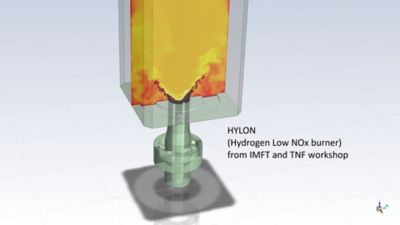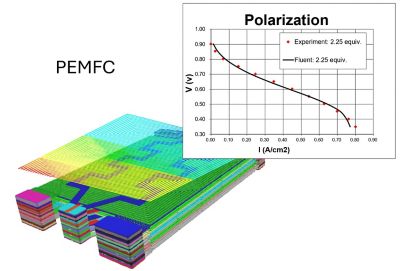About This Webinar
Hydrogen is one of the preferred energy vectors in the path to industry and transport decarbonization. Whether it is utilized in direct combustion or in fuel cells, the main product of reactions is water reducing to zero the carbon footprint at the utilization stage.
Combustion is used today in power generation and transportation. Other energy intensive industries consider hydrogen for their decarbonization as well. The natural transition is to keep combustion with Hydrogen. We’ll cover how simulation can help to optimize gas turbine or furnace efficiency without compromising the stability in the operating conditions range and control the NOx emission. Hydrogen is also used as an elementary component of e-fuel (synthetic fuel). E-Ammonia, which is produced from hydrogen is also regarded as a good energy carrier and will also be covered.
Fuel cell also offers several technical advantages to convert hydrogen into electrical or mechanical energy such as: high efficiency compared with other energy conversion (above 60 %), reduced emission (no NOx), flexibility of application from vehicle transportation to its integration into large power grids, low thermal losses.
The automotive industry already offers commercial fuel cell vehicles. Some demonstrators of fuel cells have also been used in aerospace industry. Simulation can help in the design and the operability of the fuel cells. It can help to evaluate all the efficiency losses: thermal losses, activation losses and the efficient use of the active surface area. Simulation also helps to predict polarization curves, to optimize design, and to improve longevity of the fuel cells.
The two main technologies covered will be PEMFC and SOFC.
This is the final webinar in the four part series to gain an understanding on how simulation can help to optimize gas turbine or furnace efficiency without compromising the stability in the operating conditions range and control the NOx emission, along with helping to predict polarization curves, to optimize design, and to improve longevity of the fuel cells.
To learn more about our Hydrogen Solutions visit Hydrogen Value Chain Solutions.
What you Will Learn
- How simulation can help burner or gas turbine design
- How to address specific hydrogen combustion challenges with simulation
- How simulation can guide you in operating a fuel cell or developing a fuel cell.
Presenters














